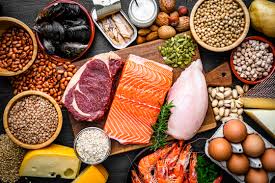Protein is undeniably essential to a healthy diet—but increasing intake beyond what your body needs doesn’t necessarily yield extra benefits. In fact, the effects on health can depend heavily on where that protein comes from.

In today’s health and fitness culture, protein is often championed as a foundational nutrient. Whether in gyms, grocery store aisles, or social media, it’s promoted as the key to better health, enhanced strength, and athletic performance.
This belief—sometimes referred to as “protein propaganda”—suggests that more protein automatically leads to greater benefits. But the science tells a more nuanced story.
Can Too Much Protein Be Harmful?
Your body depends on protein to repair tissues, create enzymes and hormones, and maintain immune function. However, the assumption that increasing protein intake leads to better health or more muscle is overly simplistic.
Consistently consuming more protein than your body needs may not only lack additional benefits—it could pose health risks.
Kidney Stress from Excess Protein
When you consume more than about 2 grams of protein per kilogram of body weight daily (that’s over 140 grams for someone who weighs 70 kg or 154 pounds), your kidneys are tasked with filtering out the waste products created when breaking down the excess protein.
Over time, this can place undue stress on your kidneys—especially if you have underlying conditions like high blood pressure or diabetes. In particular, overuse of protein supplements has been linked to increased kidney burden and could elevate the risk of chronic kidney disease, according to recent findings from 2023.
Muscle Building Has Limits
Scientific studies show that the body can only utilize around 0.4 grams of protein per kilogram of body weight per meal for muscle synthesis—about 28 grams for someone weighing 70 kg. Consuming more than this in one sitting doesn’t build more muscle; instead, the excess protein is either used for energy or excreted. Distributing protein evenly across multiple meals—about four per day—helps your body use it more effectively.
Crowding Out Other Nutrients
A diet overly focused on protein may leave less room for other crucial nutrients. If protein dominates your plate, you may miss out on key food groups like fruits, vegetables, whole grains, and healthy fats—all rich in fiber, vitamins, and minerals vital for overall health.
Impact on Digestive Health
High-protein diets—particularly those heavy in animal products—can disturb the balance of gut bacteria. This microbial imbalance may disrupt digestion, increase inflammation, and contribute to long-term digestive disorders, such as inflammatory bowel disease (IBD).
While some animal-based proteins, like dairy, may support gut health, excessive meat consumption has been linked to heightened inflammation in the digestive tract. A more varied approach that includes plant-based protein sources may be easier on your gut.
How Much Protein Do You Actually Need?
Protein requirements are highly individual and depend on several factors:
-
Activity Level: People who exercise more frequently or train intensely often require more protein to support muscle repair and growth.
-
Age: Older adults may benefit from higher protein intake to counteract age-related muscle loss.
-
Goals: Those aiming to lose weight may increase protein to maintain muscle mass and promote satiety.
-
Body Composition: Individuals with higher muscle mass need more protein to maintain it.
-
Training Intensity: High-intensity workouts increase demand for muscle repair, which raises protein needs.
For most people, meeting daily protein needs through a balanced diet is enough to support health and fitness.
Smart Protein Strategies
When considering your protein consumption, keep the following in mind:
-
Balance Matters: Focus on overall nutrient intake. Use specific measurements (e.g., 30 grams of protein) to ensure accuracy.
-
Source Quality: Where your protein comes from matters. Whole foods like lean meats, fish, eggs, legumes, dairy, nuts, and seeds not only supply protein but also offer additional nutrients beneficial for overall well-being.
-
Individual Needs Vary: Your optimal protein intake will depend on your age, lifestyle, health status, and goals.
-
Meal Timing: When you consume protein can influence its benefits. Distributing your intake evenly throughout the day may improve muscle repair and growth compared to consuming large amounts in a single meal.
Final Thoughts
Protein is vital to health, muscle maintenance, and recovery—but that doesn’t mean more is always better. Consistently consuming excessive amounts, particularly from meat and supplements, can lead to risks like kidney strain, gut disturbances, and nutritional imbalances.
The key is to focus on quality, variety, and meeting your body’s specific needs rather than chasing ever-higher numbers.
For personalized advice, consult a registered dietitian or healthcare provider. Instead of asking if you need more protein, a better question might be: How much protein is right for me and my goals?


This article sheds light on the misconception that more protein always equates to better health. It’s crucial to understand individual needs and avoid overconsumption.
I completely agree with the article. More protein isn’t always better—it’s about balance and knowing your body’s needs.
I think the article underestimates how beneficial higher protein intake can be, especially for athletes and active people.
This article is spot on! Too much protein can actually cause health issues, so it’s important to focus on overall nutrition.